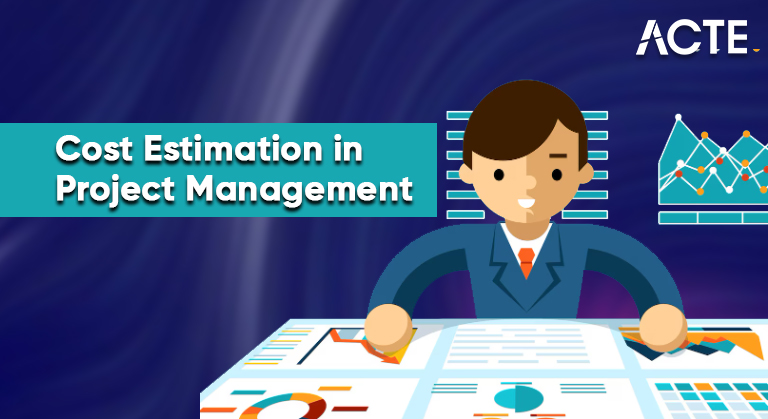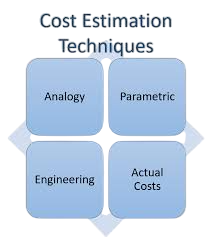
- Introduction to Cost Estimation
- Purpose and Importance
- Types of Costs (Fixed, Variable, etc.)
- Estimation Techniques
- Bottom-Up vs Top-Down Approaches
- Parametric Estimating
- Analogous Estimating
- Common Errors and Pitfalls
- Conclusion
Introduction to Cost Estimation
Cost Estimation in Project Management is the process of forecasting the financial resources required to complete a project or business activity. It serves as a foundational element in project planning, budgeting, and financial management. Accurate cost estimation not only ensures that projects are completed within budget but also supports effective decision-making, risk management, stakeholders and strategic planning. Whether in construction, manufacturing, software development, or capital investment, cost estimation helps stakeholders understand the economic implications of their decisions.cost engineering provides a financial management preview of a project before execution. It involves analyzing the scope, resources, types of costs Parametric and timeline to determine expected costs. The goal is to predict as closely as possible the expenses associated with a particular effort or investment.cost estimation techniques are dynamic; it may evolve as the project progresses and more information becomes available.
Do You Want to Learn More About Database? Get Info From Our Database Online Training Today!
Purpose and Importance
The primary purpose of Cost Estimation in Project Management is to predict the total expenses involved in completing a project or producing a product. This helps in budgeting, planning, and resource allocation, financial management Analogous estimating ensuring that financial requirements are understood upfront. It also aids in evaluating project feasibility and making informed decisions about whether to proceed.
Importance of Cost Estimation:
Accurate cost estimation is vital to avoid cost engineering, manage risks, and ensure efficient use of resources. It supports effective project management by enabling control over expenditures and timelines. Additionally, it facilitates competitive pricing, stakeholders , improves transparency, and builds stakeholder confidence by providing a clear financial roadmap.
Types of Costs (Fixed, Variable, etc.)
Understanding different types of costs is essential for accurate estimation:

- Fixed Costs: Do not change with production volume (e.g., rent, salaries).
- Variable Costs: Vary with output (e.g., raw materials, utilities).
- Direct Costs: Attributable to a specific project (e.g., labor, parts).
- Indirect Costs: Overhead not directly tied to a project (e.g., administration).
- Recurring Costs: Occur repeatedly over the project lifecycle.
- Non-Recurring Costs: One-time expenditures (e.g., equipment purchase). Each cost category plays a role in defining total project expenses.
- Involves detailed task-level estimation.
- Highly accurate but time-consuming.
- Suitable for complex projects.
- Starts with an overall cost estimate.
- Less accurate, quicker.
- Ideal for early-phase planning.
- Reliable historical databases
- Defined parameters
- Strong statistical correlations
- Quick and easy to apply
- Less accurate
- Depends on experience and historical data
- Underestimation: Leads to budget overruns.
- Scope Creep: Inadequate scope definition can inflate costs.
- Over-optimism: Unrealistic timelines or productivity rates.
- Ignoring Risk Factors: Failing to account for unforeseen events.
- Incomplete Data: Results in vague or incorrect assumptions.
Would You Like to Know More About Database? Sign Up For Our Database Online Training Now!
Estimation Techniques
Cost estimation techniques are essential tools used to predict the cost engineering and resources required for a project or task. One common method is analogous estimation, cost estimation techniques .which relies on data from similar past projects to provide a quick, high-level cost estimate, financial management though it may lack precision if project conditions differ. Parametric estimation uses statistical models and measurable parameters, such as cost per unit, stakeholders to generate more accurate estimates when reliable data is available. In contrast, bottom-up estimation breaks a project into smaller components, estimating each in detail and summing the cost engineering for a comprehensive and precise total.

Expert judgment leverages the experience of professionals to refine estimates, especially when data is scarce. The three-point estimation technique considers optimistic, pessimistic, cost estimation techniques and most likely scenarios to account for uncertainty, providing a weighted average estimate. Additionally, vendor bid analysis uses supplier quotations to inform Cost Estimation in Project Management expectations, particularly in procurement. Each technique has its strengths and is chosen based on the project’s complexity, available data, and the required accuracy.
Bottom-Up vs Top-Down Approaches
These are two contrasting strategies in project estimation:
Bottom-Up Estimation:
Top-Down Estimation:
A hybrid approach is often used: initial top-down for planning, followed by bottom-up for execution.
To Earn Your Database Certification, Gain Insights From Leading Blockchain Experts And Advance Your Career With ACTE’s Database Online Training Today!
Parametric Estimating
Parametric estimating uses statistical relationships between historical data and project variables.
For example:
Construction cost = (Cost per square foot) × (Total area) Software cost = (Cost per function point) × (Number of functions)
This technique requires:
It is efficient for large-scale or repetitive projects where cost drivers are well understood.
Analogous Estimating
Also called top-down analogous estimating , this technique uses actual costs from past, similar projects to estimate new ones.
Key characteristics:
Analogous estimating is ideal during feasibility studies or early conceptual phases when detailed data is scarce.
Preparing for a Database Job? Have a Look at Our Blog on Database Interview Questions and Answers To Ace Your Interview!
Common Errors and Pitfalls
Cost estimation is prone to human and systematic errors:
Mitigating these issues requires clear scope, data verification, and continuous review.
Conclusion
Cost Estimation in Project Management is a cornerstone of project and financial management, shaping decisions from concept to completion. Mastering various estimation techniques, cost estimation techniques, understanding cost structures,types of costs using appropriate tools, and incorporating risk adjustments lead to more accurate and reliable forecasts. Real-world examples underline the importance of due diligence in estimation processes. In a world of tightening budgets and increasing accountability, precise cost engineering becomes an indispensable stakeholders strategic skill for professionals across industries.




